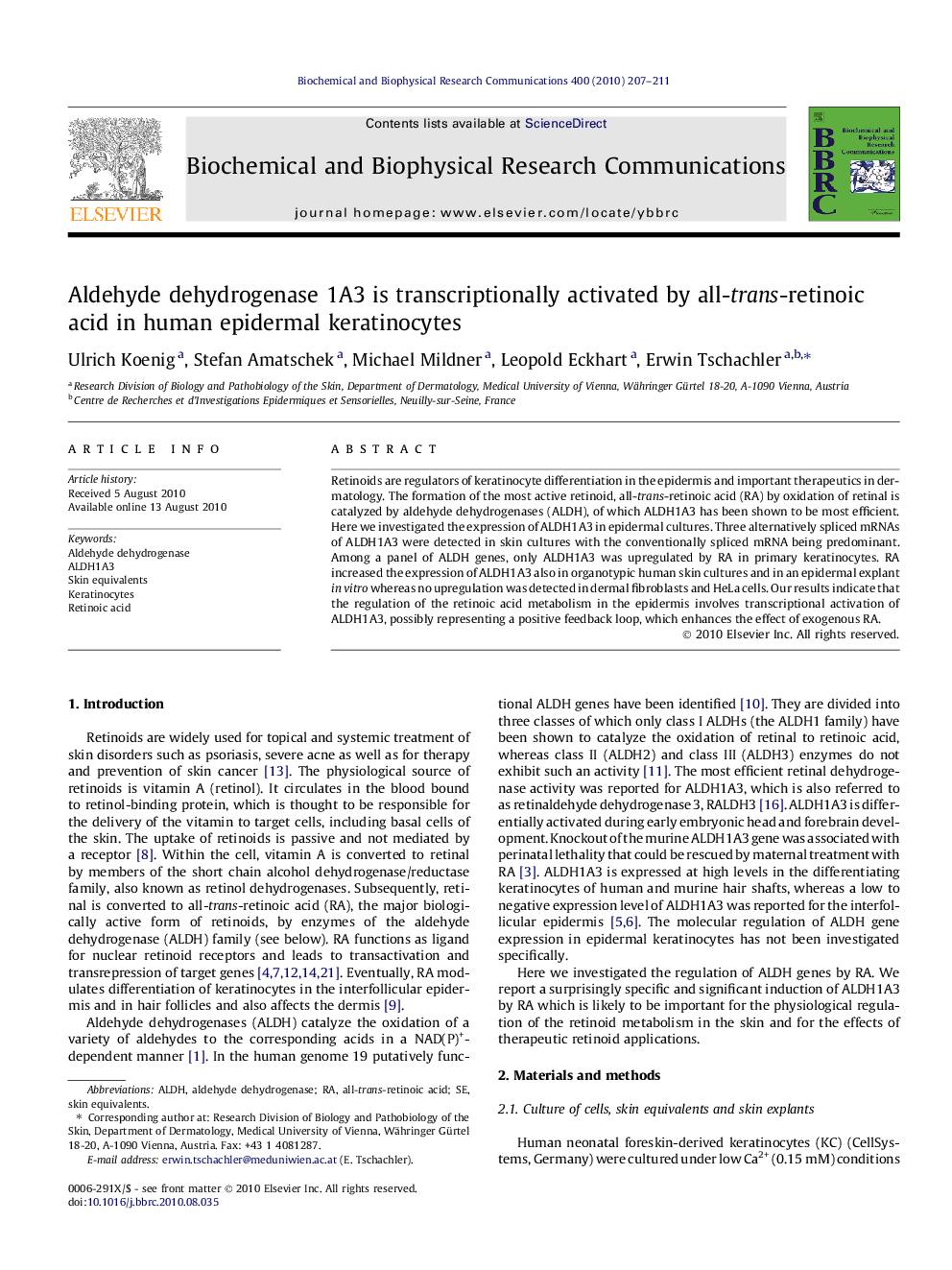| Article ID | Journal | Published Year | Pages | File Type |
|---|---|---|---|---|
| 1931452 | Biochemical and Biophysical Research Communications | 2010 | 5 Pages |
Retinoids are regulators of keratinocyte differentiation in the epidermis and important therapeutics in dermatology. The formation of the most active retinoid, all-trans-retinoic acid (RA) by oxidation of retinal is catalyzed by aldehyde dehydrogenases (ALDH), of which ALDH1A3 has been shown to be most efficient. Here we investigated the expression of ALDH1A3 in epidermal cultures. Three alternatively spliced mRNAs of ALDH1A3 were detected in skin cultures with the conventionally spliced mRNA being predominant. Among a panel of ALDH genes, only ALDH1A3 was upregulated by RA in primary keratinocytes. RA increased the expression of ALDH1A3 also in organotypic human skin cultures and in an epidermal explant in vitro whereas no upregulation was detected in dermal fibroblasts and HeLa cells. Our results indicate that the regulation of the retinoic acid metabolism in the epidermis involves transcriptional activation of ALDH1A3, possibly representing a positive feedback loop, which enhances the effect of exogenous RA.
Research highlights► ALDH1A3 but no other ALDH is upregulated by retinoic acid in keratinocytes. ► ALDH1A3 is not upregulated by retinoic acid in cell types other than keratinocytes. ► Retinoic acid increases expression of ALDH1A3 organotypic human skin cultures. ► Identification of positive feedback loop in epidermal retinoid metabolism.
